1 тип условных предложений упражнения с ключами. Упражнения по английскому языку на придаточные условные предложения. Предложения с «i wish»
Conditional sentences
(grammar material,practice)
Compiled by V.Kiselyova
Conditional sentences I
( Условные предложения I типа )
Состоят из главного предложения и придаточного предложения условия.
Они выражают реальные условия,относящиеся к настоящему или будущему
времени.
Схемы условных предложений I типа
Некоторые друзья планируют вечеринку. Все хотят устроить вечеринку, но никто не очень заинтересован в подготовке и организации вечеринки. Поэтому все придумывают несколько условий, чтобы убедиться, что другие тоже будут делать что-то. Условные - это предложения с двумя предложениями - предложение «если» и основное предложение - тесно связаны между собой. Условные предложения часто делятся на разные типы.
Прошедшее время, нереальные ситуации
Мы используем нулевое условие, чтобы говорить о вещах, которые всегда верны.
- Если вы нагреваете воду, она кипит.
- Когда солнце садится, становится темно.
- Он загорается, если вы нажмете эту кнопку.
If … V 1(-S) … … will V 1 ... … . 1)
Придаточное услов. Главное
If I have time I will visit an exhibition.
(Pr.Simple) (Future Simple)
... will V (1) … … if … V 1(-S) … . 2)
- Если завтра хороший день, мы отправимся на пляж.
- Если «Арсенал» победит, они станут вершиной лиги.
- Где бы вы жили, если бы могли жить в любой точке мира?
- Если бы вы не курили так много, вы бы чувствовали себя намного лучше.
Главноепридаточноеусловия
The children will get good marks if they write the test correctly.
(Future Simple) (Present Simple)
«если» - в условных предложениях (Present Simple )
If
«ли» - в косвенных общих вопросах (Future Simple )
Practice
I
1. If I … him I will invite him to join us.
Подчиненное предложение, выражающее условие. Основное предложение, указывающее → результат или следствие условия. Первое условие 2-го следствия → с запятой между ними. Если вы влюблены, больше ничего не имеет значения. Первое следствие 2-го состояния → без запятой.
Ничто другое не имеет значения, если вы влюблены. Однако, если мы хотим выразить отрицательное условие. Условные обозначения на английском языке подразделяются в основном на 4 типа: тип 0, тип 1, тип 2 и тип. Глагол предложения, выражающего условие, будет идти в словесном времени и глаголе предложения, выражающего результат в другом.
a) will see b) see
2. We’ll be late unless we … .
a) will hurry b) hurry
3. If it … fine tomorrow,we’ll go for a picnic.
a) is b) will be
4. If I see him,I … him that book.
a) will give b) give
5. If he … all these apples,he will be ill.
a) eats b) will eat
6. If you … away,I’ll call my brother.
a) will not go b) do not go
7. If he … late,we’ll go without him.
a) will be b) is
8. If he … hard today,can he have a holiday next week?
a) works b) will work
9. If you … this magazine,I’ll bring you another.
Что-то, что всегда происходит, когда условие выполняется. Если присутствуют простые, настоящие простые. Настоящий простой → означает показательный на испанском языке. Условный тип 1 или первый условный используется для описания ситуаций, которые, скорее всего, происходят, потому что это очень легко для выполнения условия.
Если присутствует простое, будущее с волей. Настоящий простой → эквивалентен нынешнему показательному в испанском Будущее с завещанием → означает будущее индикативного на испанском языке. Условный тип 2 или второй условный используется для описания ситуаций, которые мы хотели бы произойти, но которые вряд ли произойдут, потому что это сложно для выполнения условия.
a) will not like b) do not like
10. If he … university now,he will be sorry afterwards
a) leaves b) will leave
II 1. I’ll look for your book and if I (find) it I (give) you a ring.
If you put the ice cubes into very hot water,they (crack).
If he (win),he (get) 100,000 dollars;if he (come) in second,he (get) 50,ooo.
If he (want) more money,he (have) to do more work.
If you (not take) this book to the library tomorrow,you (have) to pay a fine.
If you (like),I (get) you a job in this company.
If the weather (be) good,we (go) to the country.
Если бы прошлое простое, то инфинитив без. В этом сообщении вы можете выполнять упражнения перефразирования, чтобы практиковать различные типы условных предложений: условный тип 0, условный тип 1, условный тип 2 и тип условный. Чтобы правильно выполнять действия, мы рекомендуем посетить записи связанных ссылок.
Эти упражнения очень полезны для учащихся первого и второго курсов средней школы, так как они очень похожи на упражнения по перегруппировке избирательности, и они также решаются. Поднимитесь! Перепишите следующие предложения, не изменяя их значения. помните.
I (tell) him the whole truth if I (know) it.
If he (invite) me,I (go) to his party.
If it (freeze) tonight,the roads (be) very slippery tomorrow.
III 1. We wonder if he (come) home on time.
They ask if the boy (want) to join us.
If the weather (be) fine tomorrow,we’ll go for a walk.
I don’t know if she (come) to the party.
The mother wants to know if her son (take) part in the concert.
If it (rain) we (take) umbrellas.
The teacher wonders if you (make) a report at the next lesson.
The child (fall) ill if he (go) to bed too late every day.
Нажмите эту кнопку, чтобы остановить машину. У нас нет центрального отопления, поэтому в доме довольно холодно. Правильный ответ: если такси не скоро появится, мы приедем на встречу поздно. Правильный ответ: «Лед превращается в воду, если вы ее нагреваете».
Мой совет - поговорить с родителями. Правильный ответ: вы бы поняли, обратили ли вы внимание. Правильный ответ: если бы Питер учился, он сдал экзамен. Правильный ответ: мы бы посетили музей, если бы успели. Правильный ответ: если ваш друг не прибудет до десяти, нам придется уйти.
Мы предоставим ему деньги только в том случае, если он обещает вернуть нас к понедельнику. Правильный ответ: если бы она не была в Германии, она могла есть на день рождения. Использование условного означает, что одно действие зависит от другого. Условные используются для обсуждения реальных или нереальных ситуаций. В общем случае условные фразы несут слово «если».
IV Finish the sentences.
If I go to the USA this summer,I will visit … .
If I feel hungry this evening,I will eat … .
If I have time next weekend,I shall go … .
If I have to write a story for homework,I will write about … .
If you come to my home,you will see … .
If it is cold tomorrow,I will put on … .
If we finish early today … .
If I quarrel with my parents … .
If I lose my keys … .
If we get too much homework … .
If my fried gets into trouble … .
I’ll eat my hat if … .
Обратите внимание, что нет словесного времени для условного на английском языке, поскольку оно существует на испанском языке. В то же время вспомогательный глагол «будет» используется для формирования условного выражения на английском языке. Существует четыре типа условных предложений, и использование одного или другого отражает вероятность действия.
Условные типы
Этот тип условного используется, когда условие и результат всегда верны, например, научные факты. Примечание. Мы можем изменить порядок предложений без изменения значения. Кроме того, в общем случае с этим типом условных мы можем заменить «если» на «когда», не изменяя значения.
We will be very happy if … .
I will be angry with my friend if … .
Will you help me if … ?
V Make up sentences.
If I go to …,I’ll see (visit)… .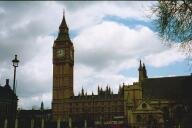
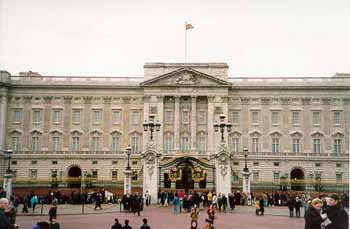
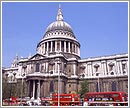
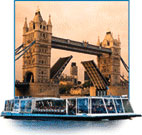
Этот тип условного используется для будущего и в тех случаях, когда очень вероятно, что условие пройдет. Будете ли вы сесть на поезд, если вы автобус? Если хотите, вы сесть на поезд? Некоторые модальные глаголы могут использоваться вместо «воли» для изменения вероятности или выражения мнения.
Урок по модальным глаголам. Если не дождь, мы должны отправиться на пляж. Если это не дождь, мы можем отправиться на пляж. Тип 2 используется для выражения нереальной возможности в настоящем, как желание или мечту, или для действия в не столь вероятное будущее.


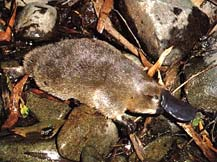
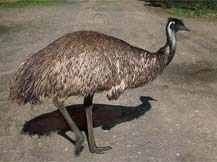
Как и в типе 1, вместо «бы» можно использовать другие модальные глаголы, чтобы изменить смысл и возможность. В отличие от типов 1 и 2, третий тип условного используется, когда мы говорим о состоянии в прошлом, которого не было. Как и в типах 1 и 2, другие модальные глаголы могут использоваться вместо «бы» для изменения значения и вероятности. «Что бы вы сделали, если бы вы были богаты?».
Вопрос просит вас сделать сразу две вещи: представьте, что вы богаты и представляете, что бы вы сделали, если бы вы были богаты. Но, не волнуйся, это все в твоем воображении. В грамматике английского языка такая мнимая молитва известна как «условное предложение».
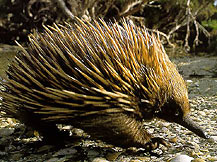
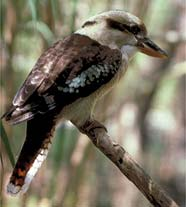
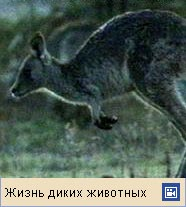
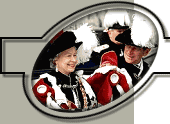 You’ll see …,if you travel (go) to … .
You’ll see …,if you travel (go) to … .
Условные используются для обсуждения мнимых ситуаций в прошлом, настоящем и будущем. Эти предложения описывают ситуации, которые могут возникнуть позже или, возможно, никогда не произойдут. Условные также служат для обсуждения прошлых действий, которые не могут измениться.
Понимание условных предложений в 5 шагах
Такого рода предложения могут быть немного трудно понять, но они чрезвычайно полезны. К счастью, с небольшими базовыми знаниями и практикой, вы можете быстро использовать их без каких-либо проблем.
Ищите слова «если» и «будет»
Все условные обозначения включают слово «если», как правило, в начале предложения. 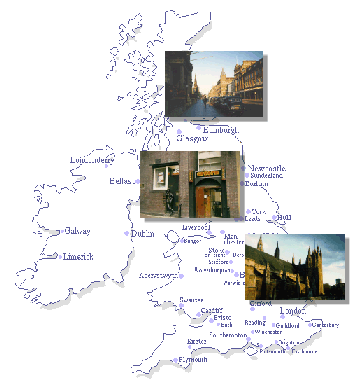
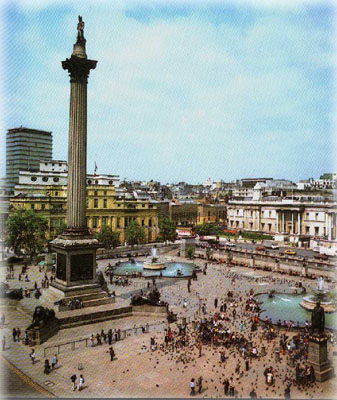
Tests
I 1. If you go to the party you (enjoy) every minute of it.
2. My friend (get) the first place if he (take) part in the competition.
3. Она приготовит очень вкусный обед,если придут друзья.
II 1. I will come home late if I (stay) to make a wall newspaper.
Поэтому, если вы найдете это слово во время прослушивания или чтения чего-либо на английском языке, очень вероятно, что это условное предложение. Когда вы найдете слово «если», найдите слово «будет». Обратите внимание, что «будет» появляется на большинстве условных выражений, но не на всех. В некоторых случаях вместо «будет» используется слово «будет», поэтому вы должны также обратить внимание на это слово.
Разбейте предложение на его основные части
В заключение, если вы увидите слово «если» вместе с «будет» или «будет», вы можете быть уверены, что нашли условное предложение. Найдя условное предложение, вы можете понять его легче, если вы разделите его на две основные части. Вот еще один пример условной молитвы.
The students (attend) the lecture if it (be) interesting.
Если мои родители достанут билеты,они пойдут вечером в
театр.
III 1. If my friend (come) to see me,I will be very glad.
If mother buys a cake,we (have) a very nice tea party.
IV 1. If you (be) free,I shall come to see you.
If she knows English,she (try) to enter the university.
If I (live) in Moscow,I (visit) the Tretyakov Gallery.
V
Live in the South go to bed at once
Come home late bathe every day
«Если бы ты тренировался каждый день, ты был бы таким подходящим». . Разбейте предложение на две части, разделенные запятой. Теперь это должно быть легче понять. Например, это предложение означает, что если вы не упражняетесь каждый день, вы не будете в хорошей форме. И, как упражнение, английский требует усилий.
Изучите все типы условных предложений
Существует 3 основных типа условных предложений: тип 1, тип 2 и тип. К счастью, эти имена легко запомнить. Имейте в виду, что каждый тип условного предложения имеет разную грамматику и цели. Условный тип 1 относится к ситуации, которая может случиться.
If I receive his letter I will be very sorry
Find my book be very glad
Lose my money be very happy
See my friend ask his advice
VI 1. If it snows,we … at home.
A) stay b) will stay
2. If she gives him her address,he … her a letter.
A) will write b) writes
VIII 1. We (drink) tea,if we (have no) coffee.
My friend (go) to the USA,if he (win) the competition.
Poem
Will You Come?
Will you come? Would you come?
Will you come? Would you come
Will you ride If the noon
Такие предложения используются, чтобы говорить о реалистичных ситуациях или планах с высокой вероятностью возникновения. Обычно, в этом классе предложения, настоящие временные глаголы используются в обоих предложениях. Как вы можете видеть, это воображаемая ситуация с высокой вероятностью материализации. Если вы едите много шоколада, вы наверняка заболеете.
Жесткая работа приносит награды. И сдача экзамена является наиболее вероятным следствием тщательного изучения. Условия типа 2 представляют собой ситуации, которые, вероятно, не произойдут. Это могут быть мнимые события, которые просто невозможны или маловероятны.
So late Gave light,
At my side? Not the moon?
O,will you come? Beautiful,would you come?
Will you come? Would you have come?
Will you come Would you have come
If the night Without scorning,
Has a moon Had it been
Full and bright? Still morning?
O,will you come? Beloved,would you have come?
If you come,
Haste and come.
Owls have cried;
It grows dark
To ride.
Beloved,beautiful,come!
Edward Thomas

Глагол в предложении «если» приходит в прошлое, а тот, что в предложении «будет», записывается в настоящем времени. Может быть, вам нравится рыба, но вы не можете стать медведем. Вам, вероятно, нравится идея иметь огромные когти и клыки, но это не то, что произойдет в действительности.
Условный тип 3 еще более запутан. В такой молитве мы говорим о прошлой ситуации или действиях, которые не могут измениться. Его часто используют для выражения раскаяния. В условном типе 3 все действия происходят в прошлом, и ничего, что было сказано, фактически не произошло. Например, этот человек никогда не учился, когда был подростком, поэтому он не мог пойти в хороший университет. Поэтому он сожалеет сейчас и хотел бы изменить прошлое.
Conditional sentences II
(Условные предложения II типа)
Выражают маловероятные и нереальные условия,относящиеся к настоящему
или будущему времени.
Схемы условных предложений II типа
1) If … V 2 … … would V 1 … … .
Если бы вы съели завтрак, вы бы чувствовали себя хорошо сегодня утром. . Вы позавтракали? Чувствовать себя хорошо? Вы знаете, вы должны были позавтракать. Грамматика условных предложений может быть строгой, но порядок предложений не является. Вы можете изменить порядок предложений, и предложение не потеряет своего значения.
Практика со смешанными условностями
Эти два предложения имеют одинаковое значение, поэтому расслабьтесь. Вам не нужно беспокоиться о порядке статей. Иногда условие типа 3 не подходит для обработки прошлых событий, поскольку оно говорит о действиях, которые нельзя изменить. Но что бы вы сделали, если бы хотели рассказать о прошлой ситуации, которая влияет на настоящее?
Придаточное главное
If we visited the Tretyakov Gallery we would see paintings of famous artists.
Придаточное главное
2) … would V 1 … … if … V 2 … … .
Главноепридаточное
They would speak English fluently if they learned the words.
Future-in-the Past Past Simple
Главное придаточное
В придаточных предложениях – was were - для всех лиц и чисел
If I were you I would not make such a mistake.
«если бы» - в условных предложениях (Past Simple )
If
«ли» - в косвенных вопросах (Future-in-the Past)
Practice
Insert the verbs in the correct form.
If I had a spare ticket,I … take you to the cinema.
a) would b) will
2. John suggested that I should … for another job.
A) look b) have looked
3. If she … you,she would be able to advise you.
A) had been b) were
4. We were afraid lest he should … too early.
A) have come b) come
5. She would buy a new fur coat if her husband … enough money.
A) would give b) gave
6. If the students attended all the lectures,they … their exams successfully.
A) would pass b) passed
7. If I were you I … him.
A) would not forgive b) did not forgive
8. I would help the poor if I … very rich.
A) would be b) were
9. If I were a doctor,I … people healthy.
A) made b) would make
10. They … to the country if the weather were better.
A) would go b) went
II 1. If I (know) his name,I’d give it to you.
He (look) a lot better if he did more esercise.
If he worked more carefully,he (not make) so many mistakes.
I wouldn’t do that if I (be) you.
More tourists would come to this seaside if it (have) better climate.
If someone (give) you a submarine,what would you do with it?
If you (not belong) to a union,you couldn’t get a job.
If I (win) a big prize in a lottery,I’d give up my job.
He might get fat if he (go on) eating like that.
If he knew that it was dangerous,he (not come).
III 1. If you (go) on a diet,you (lose) weight.
If we (work) all night,we (finish) in time.
If I see a tiger walking across Hyde Park,I (climb) a tree.
If you (keep) a cat,the mice (not run) about everywhere.
If it (be) summer,the people (not sit) round that big fire.
If you (paint) the walls white,the room (be) much bigger.
If he (take) any exercise,he (not be) so unhealthy.
If they (speak) English to her,her English (improve).
If I (ask) him for help,he (help) me.
If I (know) his address,I (can) write to him.
IV Finish the sentences.
If you ate less … .
If she practiced more … .
You would look better if … .
If you came in time … .
If you didn’t shake the camera so much,your photographs … .
If I could live anywhere I wanted,I would live … .
If I had a museum,I would collect … .
If we were all geniuses … .
If you came to visit me … .
I would stand on my head if … .
I would go to the Canary Isles if … .
V Make “Chains of events”.
1. (Boys) – If I won a car in a lottery … .
2. (Girls) – If I won the title of “Miss Universe” … .
Poem
Quiet Girl
I would liken you
To a night without stars.
Were it not for your eyes.
I would liken you
To a sleep without dreams
Were it not for your songs.
Langston Hughes
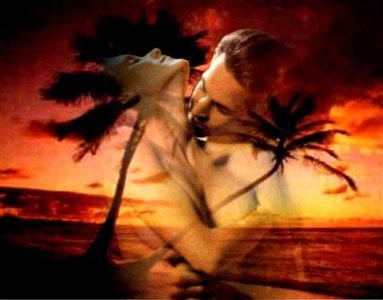
Conditional sentences III
( Условные предложения III типа)
Выражают совершенно невыполнимые условия ,не реализованные в прошлом.
Схемы условных предложений III типа
1) If … had V 3 … … would have V 3 … … .
Придаточное главное
(Past Perfect) (Future Perfect)
If you had known grammar better your composition would have been a success.
2) … would have V 3 … … if … had V 3 … … .
Главноепридаточное
The children would have travelled to England if the tickets had been free.
If «если бы»
I Match the parts of the sentences.
1. I would have bought a new coat if a)she would not have waited
2. He would have given her diamonds if for him so long.
3. Her life mighthave been saved if b)everything would have been
4. If he had taken my advice all right.
5. If you have checked the petrol before we started c)only I had had enough
6. If she had not loved him money.
D)he had stolen them from the
Museum.
E)the doctors had taken better
Care of her.
F)we would not have made so
Many stops.
II Insert the verbs in the correct form.
If I had known that you were in hospital,I … you.
a) would have visited b) had visited
2. If you … ten minutes earlier,you would have got a seat.
a) would have arrived b) had arrived
3. I wouldn’t have believed it if I … it with my own eyes.
a) had not seen b) would not have seen
4. If I … that you were coming,I’d baked a cake.
a) would have known b) had known
5. If I … what a bad driver you were,I wouldn’t have gone with you.
a) had realized b) would have realized
6. If he had known that the river was dangerous,he … to swim across it.
a) would not have tried b) had not tried
7. If you … more slowly,he might have understood you.
a) had spoken b) would have spoken
8. If he had known the whole story,he … so angry.
a) would not have been b) had not been
9. If I … again,I think that I would have succeeded.
a) would have tried b) had tried
10. If I … ready when he called,he would have taken me with him.
a) would have been b) had been
III 1. If there (be) any snow round there,we (go) skiing.
If my friend (know) my address,he (find) my house.
If I (receive) your letter,I (answer) it.
If he (give up) smoking,he (look) better.
If we (invite) them,they (come) to our party.
If I (know) they need me,I (come) at once.
If we (learn) the truth,she (be) very angry.
If he (study) more,he (pass) his exam easily.
If the story hadn’t been true,the newspaper (not print) it.
We (go) by air if we (have) enough money.
IV Make “Chains of events”.
If Cinderella hadn’t met a Fairy … … .
If Prince Gvidon and his mother hadn’t been thrown into the ocean in the
barrel … … .
If tsar Dadon hadn’t taken the golden cock from the wise old man … … .

Tests
Variant 1
What … you … if your car was broken?
A) will … do; B) would … do
b) All the students … the lesson if the teacher explains it again.
A) will understand; B) would understand
c) If you paid more attention to grammar,you … the composition better.
A) will write; B) would write
d) If you found a purse in the street,you … it to the police.
A) will take; B) would take
e) My parents … upset,if I lose my key.
A) will be; B) would be
f) You … a good time if you stayed at a hotel.
A) will have; B) would have
g) We … to the theatre if Peter wasn’t well.
h) If the weather was bad,we … out.
A) would not go; B) would not have gone
i) If he had stopped the bus,the accident … .
A) would happen; B) would have happened
j) I would have gone out if my mother … at home.
A) wasn’t; B) had been
k) If I … George,I would have invited him to the party.
A) knew; B) had known
l) If youhad done that,you … all right.
A) would have been; B) would be
Translate into English.
Я пришёл бы к вам вчера,если бы вы позвонили мне.
На вашем месте я попытался бы поехать в 3 часа.
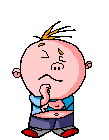
Variant 2
Choose the right form of the verb.
What … he … if he won a million dollars?
A) will … do; B) would do
b) If they catch the train,they … in time.
A) will arrive; B) would arrive
c) If you took more exercise,you … better.
A) will feel; B) would feel
d) If it stopped raining,they … shopping.
A) will go; B) would go
e) If I didn’t pass my exam,I … on vacation.
A) will not go; B) would not go
f) I … very angry,if you did not come to my birthday.
A) will feel; B) would feel
g) If I had known it,I … to meet them.
A) would go; B) would have gone
h) If the bloue matched the shirt,she … it.
A) would buy; B) would have bought
i) If you didn’t wear a warm coat,you … cold.
A) would be; B) would have been
j) He would have been late for his job if he … the train.
A) had missed; B) missed
k) If you … that,you would be poisoned.
A) drank; B) had drunk
l) If the weather … warmer they would have enjoyed the picnic.
A) had been; B) was
Translate into English.
Я бы ему написал,если бы вчера узнал его адрес.
Если бы я поехал в Атланту,я бы посетил Музей «Кока-колы».
Ключи к тесту:
B d) B g) A j) BA e) A h) A k) B
B f) B i) B l) A
a) B d) B g) B j) A
b) A e) B h) A k) A
C) B f) B i) A l) A
Задание 2
Задание 2
а ) I would have come to you
yesterday,if you had called me.
b) If I were you,I would try to
go at 3 o’clock.
a) I would have written him,if
I had known his address yester-
day.
b) If I went to Atlanta,I would
visit Coca-cola museum.
Short tests (5-10 minutes)
Conditionals II
Put the verbs in the right form.
If he (not read) so much,he would not be so clever.
If you were not so careless about your health,you (consult) the doctor.
My father (have) more free time if he (not read) so many newspapers.
If she (not be) so absent-minded,she would be a much better student.
If you were a poet,you (write) beautiful poems.
If you (ring) me up,I (tell) you a secret.
Conditionals III
If I had met you yesterday I (tell) you something.
I (get) a good mark if I had learned my lessons.
If I (read) this new book I (find) out all about this discovery.
If she (not help) me,I should have been in a very tough situation.
He (meet) his friend if he had come to our house yesterday.
If you (let) me know yesterday,I (bring) you my book.
Open the brackets and write each sentence in the I,II and III types of Conditionals.
If you (be) free,I (come) to see you.
If I (see) her,I (be) glad.
If we (receive) a telegram from him,we (not worry).
If you (be) busy,I (wait).
Conditionals of the I,II,III types.
Open the brackets and write each sentence in the I,II,III types of Conditionals.
If you (come) on time,we (catch) the train.
If the team (win) the match,it (be) a champion.
Make up the sentences.
At home go to bed at once.
If I am a poet I would got that book.
In the South be very sorry.
If I (were) come home late bathe every day.
Gone to the library I will gone to the theatre.
Fall ill been pleased.
If I had (been) had a ticket yesterday I would have write nice poems.
Met you yesterday have a good time.
Lose my money go to the doctor
Translate .
Если погода была бы(будет)хорошая,мы бы играли(будем) играть в футбол.
Упражнение 1
Раскрывая скобки, напишите каждое предложение три раза, образуя условные предложения 1, 2 и 3 типов.
· E.g. If you (to be) free, I (to come) to see you.:
If you are free, I will come to see you.
If you were free, I would come to see you.
If you had been free, I would have come to see you.
If I (to see) her, I (to be) glad.
If I see her, I will be glad.
If I saw her, I would be glad.
If I had seen her, I would have been glad.
1. If my friend (to come) to see me, I (to be) very glad. 2. If mother (to buy) a cake, we (to have) a very nice tea party. 3. If we (to receive) a telegram from him, we (not to worry) . 4. If you (not to work) systematically, you (to fail) the examinations. 5. If you (to be) busy, I (to leave) you alone. 6. If I (to live) in Moscow, I (to visit) the Tretyakov Gallery every year. 7. If I (to get) a ticket, I (to go) to the Philharmonic. 8. If I (to live) near a wood, I (to gather) a lot of mushrooms. 9. If my father (to return) early, we (to watch) TV together. 10. If she (to know) English, she (to try) to enter the university.
Упражнение 2
П ерепишите каждое из следующих предложений дважды, образуя предложения нереального условия:
а) относящиеся к настоящему или будущему,
b ) относящиеся к прошедшему.
1. If I am not too busy, I shall go to the concert. 2. They will all be surprised if I make such a mistake. 3. If he doesn"t come in time, shall we have to wait for him? 4. If no one comes to help, we shall be obliged to do the work ourselves. 5. If you put on your glasses, you will see better. 6. What shall we do if they are late? 7. Will you be very angry if we don"t come? 8. Will he be very displeased if I don"t ring him up?
Упражнение 3
Употребите глаголы, данные в скобках, так, чтобы предложения выражалт рельное условие.
1. If I (to see) John, I (to tell) him your news. 2. He (to be) very pleased if it (to be) really true. 3. If you (to go) to town on Monday, you (to meet) my brother Tom. 4. If you (to need) help, my father (to help) you. 5. We (to have) a picnic lunch if the day (to be) fine. 6. If you (to ask) a policeman, he (to tell) you the way. 7. I (to finish) the job tomorrow if I (to can). 8. I (not / to require) an umbrella if it(not / to rain). 9. If she (to think) it over carefully, she (to form) a clear opinion. 10. If they (to catch) the bus now, they (to arrive) at half past nine. 11. He (to find) the answers if he (to look) at the back of the book. 12. If you (to want) me to, I (to come) for a walk with you. 13. If he (to write) to her, she (to answer) at once. 14. If you (to wait) a few moments, the waiter (to bring) your coffee. 15. He (to lose) weight if he (to stop) eating too much. 16. If she (to be) patient, I (to try) to explain. 17. I (to wear) a purle tie only if I (to must). 18. If we (to leave) at once, we (to catch) the early train. 19. If he (to do) that again, his father (to punish) him. 20. If she (drink) this medicine, she (to feel) much better.
Упражнение 4
Раскройте скобки таким образом, чтобы предложения выражали: а) реальное условие, b) нереальное условие настоящего времени.
1. If I (to know), I (to tell) you. 2. If she (to want) to talk she (to ring up). 3. Her health (to improve) if she (to sleep) longer. 4. If he (to have) enough money, he (to buy) a large house. 5. She (to feel) lonely if Peter (to go) out every evening. 6. We (to be) pleased to see you if you (to arrive). 7. If we (to can) come on Sunday, we (to come). 8. I (to understand) Mr. Smith if he (to speak) slowly. 9. We (not / to go) by ship unless there (to be) no other way. 10 If you (not / to give) him good meals, he (not / to be able) to work hard.
Упражнение 5
Замените предложения нереального условия в настоящем времени на предложения нереального условия в прошедшем времени.
1. If she tired, she could be better. 2. He would do more work if he were able. 3. I should live better if I earned more money. 4. If I knew the answer, I should tell you. 5. He wouldn"t come unless you invited him. 6. We shouldn"t remember it if it weren"t so strange. 7. If I had time, I would help you. 8. Peter would come if you wanted him to. 10. If you wrote more often, you would receive more letters. 11. They would prefer to keep it if they could. 12. I would buy it by myself if I had money. 13. If they offered it to me for nothing, I wouldn"t take it. 14. I should break a promise if I answered your question. 15. If you swore to keep a secret, I would tell you.
Упражнение 6
Составьте предложения, найдя соответствия между левой и правой колонками.
|
1. If I go on a diet |
a. we"ll make a snowman |
|
2. If it"s sunny tomorrow |
b. I"ll buy you some chocolate |
|
3. If John doesn"t hurry |
c. she"ll have to take a taxi |
|
d. I"ll lose weight |
|
|
5. If there sre no buses |
e. he"ll be late |
|
6. If you are a good girl |
f. we"ll go for a picnic |
Упражнение 7
Поставьте глаголы, данные в скобках, в нужное время.
John Smith is in prison. How did it happen? If John (not / to oversleep), he (not / to be) late for work. If he (not / to be) late for work, his boss (not / to fire) him. If John (not / to lose) his job, he (not / to need) money and he (not / to rob) the bank. If he (not / to rob) the bank, the police (not / to arrest) him.
Упражнение 8
Составьте условные предложения, используя материал левой и правой колонокб которые отражали бы Ваше отношение к ситуации.
e.g. Daniel had fallen ill. put on coat / catch cold
Daniel wouldn"t have caught cold if he had put on coat.
| 1. Nick has broken his leg. | climb ladder / break his leg |
| 2. Mr. Davidson had got a smashed car. | drive carefully / avoid accident |
| 3. John Smithson was the second in the competition. | run faster / win the race |
| 4. Chris has cut his finger. | play with knife / cut finger |
| 5. Mary has got a terrible headache. | have headache / take aspirin |
| 6. Mrs. Claydon has nothing left for supper. | leave fish on the tablet / cat eat it |
Упражнение 18
1. He is busy and does not come to see us. If ... . 2. The girl didn"t study well last year and received bad marks. If ... . 3. He broke his bicycle and so he didn"t go to the country. If ... . 4. He speaks English badly: he has no practice. If ... . 5. I had a bad headache yesterday, that"s why I didn"t come to see you. If ... . 6. The ship was sailing near the coast, that"s why it struck a rock. If ... . 7. He was not in town, therefore he was not present at our meeting. If ... . 8. The pavement was so slippery that I fell and hurt my leg. If ... . 9. The sea is rough, and we cannot sail to the island. If ... . 10. They made a fire, and the frightened wolves ran away. If ... . 11. It is late, and I have to go home. If ... . 12. I was expecting my friend to come, that"s why I couldn"t go to the cinema with you. If ... . 13. He always gets top marks in mathematics because it is his favourite subject and he works a lot at it. If ... . 14. I didn"t translate the article yesterday because I had no dictionary. If ... . 15. We lost our way because the night was pitch-dark. If ... . 16. The box was so heavy that I couldn"t carry it. That"s why I took a taxi. If ... .
Упражнение 19
Образуйте условные предложения.
1. The travellers had no camera with them, so they could not take photos of the beautiful scenery. If ... . 2. There was no sugar left, so we had to go to the shop late in the evening. If ... . 3. This house is very nice and comfortable, but it is not very good for living because it is situated close to a chemical plant and the air around is very bad. If ... . 4. He is an excellent specialist, but I can"t ask his advice because I"m not acquainted with him. If ... . 5. You cannot enjoy this merry evening party because you have a toothache. If ... 6. You know the material well enough, but you are very absent-minded, and that"s why you always make many mistakes. If ... . 7. You did not ring me up, so I did not know you were in trouble. If .. . 8. You left the child alone in the room, so he hurt himself. If ... . 9. They spent a year in the tropics, so they got very sun-tanned. If ... . 10. It rained heavily, so we got drenched to the skin. If ... . 11. Why didn"t you watch the cat? It ate all the fish. If ... . 12. A huge black cloud appeared from behind the forest, so we had to turn back and hurry home. If ... . 13. We shall not go to see them because it is very late. If ... . 14. Naturally she was angry, because you were in her way. If ... .
Придаточные условия Придаточные условия. Тесты Тест 1, "m.c." Тест 2, "m.c." Тест 3, "m.c." Тест 4, "m.c." Тест 5, "m.c." Тест 6, "m.c." Тест 1, "gaps" Тест 2, "gaps" Тест 3, "gaps" Тест 4, "gaps" Тест 5, "gaps" Наклонение. Сослагательное наклонение Сослагательное наклонение в придаточных
